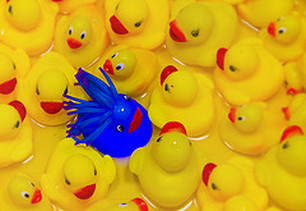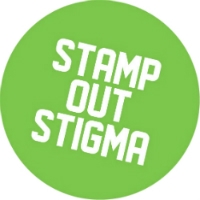http://www.yourmindyourbody.org/mental-health-month-blog-day/
|
Go to their site to read mental health blogs
http://www.yourmindyourbody.org/mental-health-month-blog-day/
0 Comments
My son experiences major depressive disorder, anxiety, and occasional psychosis. Last week he stood in front of a large group of people at a funeral and gave an eloquent, articulate, and heartfelt speech. Later that day someone said, “He looks so normal, you would never know that he had any problems.”
What is normal? According to the online dictionary the word normal means to conform to the standard or the common type; usual; not abnormal; regular; natural. When talking about psychology the word means approximately average in any psychological trait, as intelligence, personality, or emotional adjustment. “Approximately average” is not what I strive for in life. I hope that no one strives to be approximately average. So why do we wish to be normal? During some of my son’s darkest times he did just that, “I just want to be normal,” he said. And his counselor responded, “Maybe you need to redefine what normal is.” We need to do more than redefine normal; we need to stop using the word. Instead of describing someone as normal we should talk about people in terms of personality or strides they have taken. For example you could say, “He is well spoken, he has a varied vocabulary, he writes well, he makes a presence in a room, he works hard, he is interesting, polite, humorous, soft-spoken, kind, or any number of adjectives, but please, not normal. When experiencing a mental illness wish for health, happiness, creativity, resourcefulness or strength, but please don’t wish to be normal. The renowned psychiatrist and psychotherapist Carl Jung said, “To be normal is the ideal aim of the unsuccessful.” Jung was determined to live his life in an uncompromisingly unique way. Don’t compromise to live a normal life. Reach high, aim for uniqueness, and don’t be normal. I had an article published in The World of Psychology on PsychCentral about the importance of the words we use when talking about mental illness. Please follow the link below to read the article.
http://psychcentral.com/blog/archives/2015/05/14/when-talking-about-mental-illness-words-matter/  One of the final writing assignments my son had before he completed residential treatment was to tell about his childhood abuse. He decided to put his words into a poem. This poem is also in Cutting the Soul, but I felt it needed a spotlight of its own. "It started out as a simple game of truth or dare, but who would've known where it could've gone from there? With eagerness on the brain and innocence in his heart, a young boy took the first step and played the part. A role as the victim is what they would say, and the boy blames himself to this very day. And cutting himself in every which way, he truly believed this made him gay. If only he knew the weight of his decision and stopped the self-harm at the first incision. If only he'd objected, refused from the start, then there'd be no play and he'd have no part. A few seconds, that's all it took, for his life to be changed, rearranged, and shook. The art of pain he has now perfected, hurting himself was how he projected. A riddle for the wise, a poem for the poor, his family doesn't recall, but the boy's keeping score. And now that the deed is done and squared away, the boy will keep on living, day after day. A new start and a fresh beginning, life isn't a game, but if it were, I'd be winning." TALK ABOUT IT. YOUR STORY COULD CHANGE A LIFE.
Follow the link below to learn about mental health awareness month. http://us8.campaign-archive2.com/?u=9caeec93aa1465b9b284919a7&id=28648765f7&e=cab7cc7d5f |
Archives
January 2019
Click on the RSS Feed link above to follow my blog
|


 RSS Feed
RSS Feed